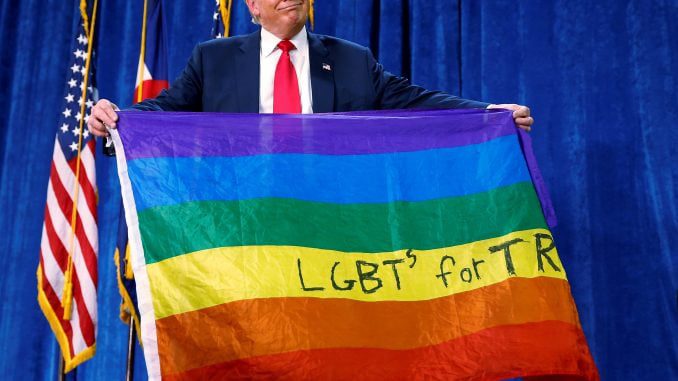
Should political candidates appeal to particular racial, ethnic or gender groups? Or should they broaden their message to appeal to all groups?Such are the questions that presidential campaigns ask themselves in the circular firing squad of blame and finger-pointing that follow a big loss.Four years ago, the big word for Republicans after President Barack Obama’s re-election was “diversity.” After losing the popular vote in five of the previous six presidential elections, the Republican National Committee’s “autopsy” report called for aggressive outreach to blacks, Hispanics, Asians and other growing nonwhite demographic groups that were not voting much for Republicans.Alas, that outreach approach evaporated with the Grand Old Party’s nomination of Donald Trump. Result: The GOP now has lost the popular vote in six of the past seven elections and yet bagged enough electoral votes to win the White House this year.Republicans also crushed Democratic hopes to take back at least the Senate. Indeed, they appear to be one Supreme Court appointment away from dominating all three branches of the government. In no way can Democrats find victory in any of that.Now the big word or phrase in Democratic discussions is “identity politics,” a blessing to some and a curse to others.The term has been around since the 1960s. Think of the period 50 years ago when the Rev. Martin Luther King Jr.’s broad humanitarian themes were elbowed aside by the feisty, militant “black power” movement.Although the black power movement struck me as a slogan in search of a program, it inspired a new wave of “identity politics” for women, racial groups, gender groups, ethnic communities and other often-marginalized groups.The headlines bristle with the term in the wake of Hillary Clinton’s loss to Donald Trump. “The Politics of Identity Blessing or Curse?” asked a Huffington Post headline. ” ‘Identity Politics’ and Its Defenders,” was another in The New York Times.From the right: “Identity Politics: Liberals, Do the Math,” suggested National Review. Meanwhile, on the left, “Stop Calling It ‘Identity Politics’ It’s Civil Rights,” Alternet reminded.Or it’s “identity liberalism,” as liberal Columbia University historian Mark Lilla proclaimed in a widely discussed post-election New York Times op-ed that declared “the end of identity liberalism.”Hillary Clinton was at her best, Lilla wrote, when she spoke about American interests in world affairs and our understanding of democracy. But back at home, he continued, she tended to lose that large vision and slip into the rhetoric of diversity, “calling out explicitly to African-American, Latino, LGBT and women voters at every stop.”Of course, once you mention some groups, those whom you don’t mention will feel shortchanged and excluded, Lilla wrote, as did the two-thirds of white voters without college degrees and the 80 percent of white evangelicals who voted for Trump.Indeed, Obama’s experience in my view offers a valuable model of both liberal success and conservative backlash. His debut national speech at the 2004 Democratic National Convention was notable for its come-together themes, stressing our commonality as Americans amid our diversity.Obama was often criticized by those in the farther left for preferring universalist programs like the Affordable Care Act over programs targeted to African-Americans. But his approach to campaigning and governing carried him to more victories than Clinton’s did.Of the nearly 700 counties that twice sent Obama to the White House, almost one-third flipped to support Trump, according to the Associated Press. Trump also won 194 of the 207 counties that voted for Obama in only one of the two previous elections. Of that group, Clinton won only 13.We will hear endless reasons from various people for Clinton’s loss. But I agree with Lilla that taking of too many groups for granted added to her well-known failures to “connect” with many voters who had voted for Obama.Trump’s ability to win more of the black, Hispanic and women’s vote than many expected shows how neither party can rely on changing demographics to bring victories. Voters still want to be asked for their votes.And identity politics turns up on both sides of the political fence. As one reader responded to Lilla, “Ask conservatives to abandon the identity politics of white Christians and then we’ll talk.”Instead of getting hung up on identity politics, which suggests competition between identity groups, both parties need to move back toward coalition politics. Areas of disagreement need not block the way to common ground.Identity politics is not dead. But both parties need to find healthier ways to practice it.Clarence Page is a syndicated columnist and member of the Chicago Tribune’s editorial board.



